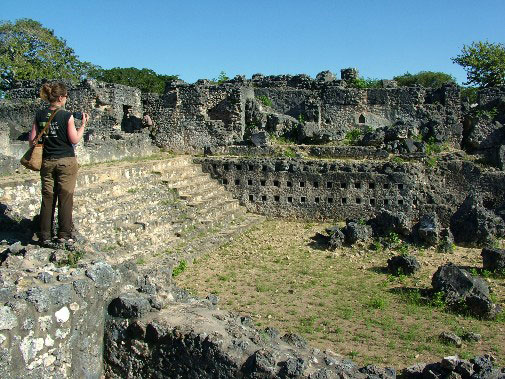 YORK, ENGLAND—According to a statement released by the University of York, DNA analysis of remains from Kenya and Tanzania suggests that merchants from Persia who traded along eastern Africa’s coast between A.D. 900 and 1100 had children with local women. Their descendants came to dominate the towns on the so-called Swahili Coast of the Indian Ocean. Jeffrey Fleisher of Rice University said that Swahili oral histories also tell of Persian ancestry. “We have long believed that cultural changes were associated with the adoption of Islam and this new research gives us a genetic timeframe that suggests that this is a reasonable assumption to make,” added Stephanie Wynne-Jones of the University of York. “Persian migrants would have been part of the cosmopolitan world created by coastal African societies,” she explained. The study also detected the arrival of ancestry from Arabia in the Swahili coastal population about 500 years later. Read the original scholarly article about this research in Nature. To read about water storage solutions on the arid Swahili Coast, go to "The Ancient Promise of Water: Saving for the Season."
YORK, ENGLAND—According to a statement released by the University of York, DNA analysis of remains from Kenya and Tanzania suggests that merchants from Persia who traded along eastern Africa’s coast between A.D. 900 and 1100 had children with local women. Their descendants came to dominate the towns on the so-called Swahili Coast of the Indian Ocean. Jeffrey Fleisher of Rice University said that Swahili oral histories also tell of Persian ancestry. “We have long believed that cultural changes were associated with the adoption of Islam and this new research gives us a genetic timeframe that suggests that this is a reasonable assumption to make,” added Stephanie Wynne-Jones of the University of York. “Persian migrants would have been part of the cosmopolitan world created by coastal African societies,” she explained. The study also detected the arrival of ancestry from Arabia in the Swahili coastal population about 500 years later. Read the original scholarly article about this research in Nature. To read about water storage solutions on the arid Swahili Coast, go to "The Ancient Promise of Water: Saving for the Season."
Genome Study Reflects Swahili Oral History
